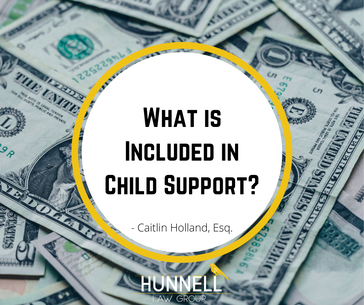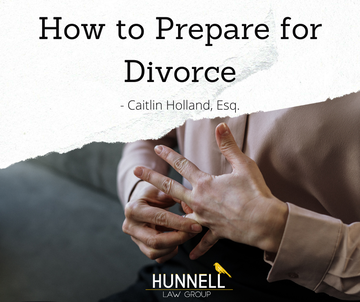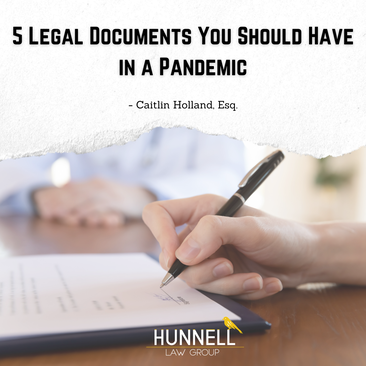 - Caitlin Holland, Esq. July is here – July usually brings us sunshine, summer vacations on the shore, fireworks and barbeques. This July, parents will be receiving advance child tax credit payments as part of the American Rescue Plan. Starting today, July 15, 2021, through December, IRS will pay half of the total credit amount due, with the other half being paid when you file your 2021 income tax return. Eligible families can qualify for up to $300 per month for each child five (5) and under and up to $250 for children six (6) to seventeen (17). The amounts can be smaller based on income. There are income limits, and the IRS is considering income from your 2019 or 2020 tax return, whichever is later. Your child must be under the age of eighteen (18) at the end of 2021. You will receive the payments the same way that you received stimulus checks this past year. Eligibility has been greatly expanded for the 2021 calendar year. To receive the maximum credit, married or widowed parents must have combined income under $150,000. Parents who are not married or widowed can make up to $112,5000 if they are heads of households and $75,000 for all other individual taxpayers including single filers and married persons filing separate returns. If you do not make enough money to pay income taxes you are still eligible to receive the benefit this year, but you must input your information with the IRS. The credit is “fully refundable” this year, so families that meet the above qualifications are eligible to receive the full dollar amount, even if they do not owe income taxes. Because of the novelty of the changes, the American Rescue Plan includes a safe harbor provision that provides individuals making less than $40,000 (or couples filing jointly making less than $60,000) will not need to repay any overpayment. However, at this time, many of these changes are only for 2021. This advanced tax credit is potentially problematic for divorced parents who share custody, however, the IRS has not currently issued any guidance for issues that could arise. Generally, the ability to claim your child as a dependent after divorce rests with the parent who the children reside with for a majority of the year. If parenting time is split evenly, or 50/50, the parent who makes more money granted the right to claim the child by the IRS. This is simply because the more the parent makes, the less money they will receive for the credit, thereby leaving a greater amount for the IRS to keep. Many parents decide to make a stipulation in their property settlement agreement alternating which parent can claim the child as a dependent in a given year. When parents have multiple children, the credit is often split, with each parent claiming a certain number of the children on a given year (for example: Wife claims two daughters and Husband claims one son in odd years, Wife claims one son and Husband claims two daughters in odd years). Those parents typically fill out IRS Form 8332 in order to direct which parent should receive the amount in a given year. Because this benefit is, so far, only for the 2021 calendar year, it can cause some problems for divorced parents who share custody. Recently, President Joe Biden introduced the American Families Plan which would potentially keep the expanded child tax credit in place through 2025. Options: 1. Make an agreement regarding payments – Because the expanded eligibility is, so far, for this year alone, the benefits of receiving the advanced tax credit this year is particularly attractive. At this point, it appears that the IRS will provide the advanced payments to the parent who claimed the child as a dependent in 2020 (if you did not file taxes for 2020 yet, the IRS will use 2019 taxes). This could potentially be in conflict with the parent’s agreement as to who should file the child tax credit for 2021. If you anticipate the advanced credits will cause a rift between you and your child’s other parent, it would be beneficial to make an agreement regarding the tax credit in writing. For example, the parties can agree that the parent making with a lower annual income claim the dependency so that the parties can, perhaps, split a portion of the maximum amount. Remember that only one parent may claim a single child each year. If both parents attempt to claim the same child/children as dependents, they may be required to repay all or a portion of the monies received. This is a departure from the guidance surrounding stimulus checks which allowed both parents to claim the same child/children to receive the maximum benefit. 2. Opt out of advance payments – If the parties cannot come to an agreement at this time and may benefit from some extra time to come to an agreement or ask for guidance from the Court via motion practice, you may opt out of the option of receiving monthly checks on the IRS website. if parents choose to opt out of prepaid monthly payments, they will receive a full tax credit in 2022 when filing their 2021 tax return. It’s currently too late to opt out of the initial July 15th payment. Here are the cutoffs for the next payments: • Aug. 2 for the Aug. 15 payment • Aug. 30 for the Sept. 15 payment • Oct. 4 for the Oct,. 15 payment • Nov. 1 for the Nov. 15 payment • Nov. 29 for the Dec. 15 payment At the end of the day, the child tax credit can amount to a large chunk of change, but it is not worth a drawn out fight in court where the parties will deplete the entire amount through counsel fees alone. It’s best to come to some kind of an agreement. If you need help coming up with a creative solution to the issues arising from the American Rescue Plan’s Advanced Child Tax Credits, visit HunnellLaw.com/contact to request an appointment with an attorney.
1 Comment
HOA Pet Restrictions: Limits on Dogs But Not On Children?!
By Ryan Westerman Homeowners’ Associations (or “HOA’s” as they are commonly referred to) are the governing bodies that make, change, and enforce the rules of the community for which it was incorporated to run. HOA’s govern real property complexes, like a condominium building or a senior citizen development. Property owners within the complex are members of the HOA and are encouraged to attend and participate in the meetings where communal issues are discussed and often colorfully debated. Members vote in elections for the purpose of elevating other members to the HOA’s board which influences the decisions made on behalf of the community. Some issues are reserved to a board member vote. Some issues are held to a general vote by all members of the community. As with any vote, there are winners and losers. Sometimes the loss can be heartbreaking. An HOA for a recent buyer represented by the Hunnell Law Group voted to change their pet restrictions with a result that I found to be patently unfair but also having the possibility to tear a family apart. It’s a safe conclusion that most people with pets view them as members of the family. #Furbaby has over 17,500,000 million posts on Instagram as of this writing. Our pets are our children. We feed them, take them to the doctor when they’re sick, and in return there is a mutual love like no other. You can imagine my shock when I read the following change to the HOA pet rules: __________ “Any units having more than one (1) pet as of May 2012, will be considered “grandfathered”. Definitions: “Grandfathered” unit owners shall not be allowed to add or increase the number of pets above the current number of pets in the unit as of the approval date of this publication. “Grandfathered” unit owners shall not be allowed to replace pets in the event the current number of pets decrease as a result of death of a pet unless it is the last pet in the unit. __________ These new rules were enacted in 2021. Thus, any current member that took in a second pet after May 2012 (almost NINE YEARS AGO!) could have to give them up. There is no fairness to this rule any way you cut it. First, the rule should be enforceable as of the day of it’s passing. Members should be on notice of such dramatic life changes so they can decide not to take on a second pet, rather than be forced to give them up. Taking away someone’s pet is inhuman in my humble opinion no matter how long you have them. As with any relationship, the bond only grows stronger with time. I personally have difficulty finding this rule to be enforceable. However, unless the affected party can negotiate with the HOA or afford a lawsuit, chances are Fluffy will have to go. Or Spike. A true Sofie’s choice. #realestate #attorney #HOA #woof #meow  5 Reasons You Should Retain an Attorney for Your Divorce by Caitlin Holland, Esq. Updated 7/9/22 1. You are not familiar with the divorce process/ you do not know where to start. Divorce can be a complicated and fairly emotional process. That is especially true since processes and procedures have changed so significantly after COVID, including electronic filings and virtually hearings. Retaining an attorney that aligns with you, your finances, and your expectations can be a great asset to you in your divorce process. Family Law Attorneys are familiar with the rules of Court, procedure, proper documentation necessary in the divorce process and technology necessary for virtual appearances. Their expertise will give you peace of mind by helping you avoid the anxiety of having to represent yourself properly. An attorney can also help you manage your expectations in a divorce which can help you settle your divorce more quickly and avoid future conflict. Even if the divorce is not contentious, you can avoid future conflict or work if you hire an attorney to ensure that the proper procedures have been followed. 2. Your relationship with your spouse is becoming contentious. When a marriage starts to break down, there is often conflict. While some parties can successfully navigate the conflict and proceed with an amicable divorce, it is not always the case. Often when there are hurt feelings, an adversarial spouse will hurl idle threats at the other spouse (“You’ll never see your child again if you divorce me”) that can fuel a contentious divorce. When that happens it becomes hard to maintain perspective and the process can become more about defending yourself than working toward your future after divorce. By retaining a Family Law Attorney, you can avoid some conflict and bullying, and have someone in your corner guiding you through the chaos. When one or both parties retain attorneys, the parties may even be able to avoid contact with the other by only communicating about the divorce through their attorneys. 3. You and your spouse have complicated finances that will require a lot of documentation. If the parties have particularly complicated finances, it is prudent to retain an attorney. For example, if the parties own their own business(es), there are numerous assets or debts, a party is requesting alimony or a party is requesting child support, there will likely be disclosures and documents that you would like to review before you agree to any terms of divorce. Navigating discovery can be daunting and confusing when a party is left to make those requests on their own. It is best practice to retain an attorney in order to ensure that you receive all necessary financials and are making the best deal possible and/or advocating for an equitable settlement. 4. You have children. Having children presents a number of complications in the divorce process. Issues arise like child custody, child support, parenting time, school, health expenses, etc. Often, parties have an idea of the custody and parenting time aspects of the divorce based on the status quo of the marriage. However, there are certain statutory requirements to things like child support that an experienced family law attorney can help you navigate, including ensuring proper income and expenses are included in the Child Support Guidelines. This also tends to be a very emotional portion of the divorce process, an attorney will be able to help you manage your expectations and advocate for you and your child(ren)’s best interests. 5. There are one or more prior orders or agreements between the parties. Whether the parties negotiated a prenuptial or postnuptial agreement, or there is a restraining order with temporary terms, it can be prudent to engage an attorney to help you navigate your divorce under the terms of the prior agreements and/or make petitions to the court to contest or modify terms of those prior agreements, if necessary. If you are interested in speaking to an attorney about a divorce, go to wwwHunnelLaw.com/contact to schedule an appointment. By Ryan Westerman
Recently, the Hunnell Law Group has received an influx of cases seeking to sue their home inspector for making one or more major mistakes or omissions during the home inspection phase, costing the property owner several thousands of dollars in necessary repairs post-closing. In a few instances, the mistakes were glaring. I was shocked a licensed inspector could miss items that are so open and obvious. My first words of advice to these parties are review the Home Inspection Agreement. This is the document that outlines the terms and conditions of the home inspection which both parties sign. More often than not, there is a low ceiling on what can be recovered. It is not uncommon to limit the damages to just the return of the inspection fee, typically between $400.00 - $600.00. Recently, I saw a liability limit that appeared more reasonable on its face. There was a catch of course. Isn’t there always? "[LIABILITY] will not be more than the lesser of actual damages or ten times (10x) the inspection fee. Client waives any claim for consequential, exemplary, special, or incidental damages or for the loss of the use of the property." It doesn’t take much imagination to create the scenario where the actual damages are significantly more than 10x’s the inspection fee. If the inspection overlooked an enormous structural issue that will cost $20,000.00+ to repair, and the inspection cost $500.00, then the aggrieved party is getting $5,000.00, without the ability to sue for other damages. The Home Inspection Advisory Committee (N.J.A.C. 13:40-15) does hold inspectors to a certain level of professional performance. N.J.A.C. 13:40-15.20 (“SUSPENSION, REVOCATION, OR REFUSAL TO RENEW LICENSE”) outlines instances where the Committee “may deny, refuse to renew, or temporarily suspend or revoke a license, or issue a civil penalty[.]” An inspector that has engaged in “repeated acts of negligence, malpractice or incompetence” qualifies for punishment from the committee up to and including losing their license. So, while you may not be made whole financially, you can report the inspector to the committee, in the hopes of preventing another individual from a financial windfall or purchasing a house without a sound structural foundation. It’s officially been over a year since the New Jersey Courts have transitioned to virtual proceedings. After months of growing pains, court calendars were scheduled again and virtual hearings became common practice. Unfortunately, many court calendars are still backlogged and running much slower than they did before. This can be bad news for divorcing couples as some judges’ calendars are so backlogged that they are scheduling divorce trials months and months in the future.
It’s commonly known that most divorces settle. The reason for this is that parties usually want control over the terms of their divorce, especially when there are children involved. There are a few different ways to settle a divorce through Alternative Dispute Resolution before it ever gets to trial.
There are many benefits to settling a divorce through ADR, especially right now. First, as previously mentioned, the parties maintain varying levels of control over the terms of their divorce. Second, use of one of the above methods of ADR can significantly decrease the cost of your divorce. Divorces are notoriously expensive – there are so many costs associated with trial that you can avoid should you choose to settle. Third, Courts are governed by case law, statute, court rules and the rules of evidence. If you decide to settle your case there are, generally, more creative solutions that are not strictly bound by Rules and evidence. Fourth, divorce litigation can take a very long time, especially amidst the pandemic. If a divorce is particularly contentious or complicated, there can be weeks of trial dates, whenever the Court can fit them into the calendar. Finally, ADR will almost certainly avoid the high level of conflict that comes with a trial. Divorces are emotionally taxing, but if you are willing to come to the table and compromise it can be beneficial to the parties’ relationship moving forward. Obviously, ADR is not the best choice in every case, but it’s surprising how many contentious divorces can settle if the parties have the right attorneys and are willing to make some compromises. If the parties do not choose to move forward through one of the above-mentioned processes, the court would then schedule trial dates and the parties would move forward with traditional litigation. If the parties are successful in their attempts to settle the case through ADR, they then submit their agreement or the arbitrator’s decision to the Court and appear at an Uncontested Divorce Hearing where the judge signs the Judgment of Divorce. If you are contemplating divorce and would like to speak to an attorney, visit HunnellLaw.com/contact to determine whether ADR may be applicable to your circumstances. Author: Caitlin Holland, Esquire  In New Jersey, child support is calculated using a formula established by statute.[1] The Child Support Guidelines take into account the number of children, the age of the children, the income of the parents, the number of overnights the children spend with the parents, etc.[2] The Child Support Guidelines do not apply to all families and in those cases, the Court will establish an appropriate amount of support. Additionally, if the Court finds it appropriate, it may choose to deviate from the Guidelines. Once established, child support remains in place until the child is emancipated, either by circumstance or automatically by age, with few exceptions. The parent who has the obligation to pay child support pays the full amount to the other parent, usually weekly. Although child support is not paid directly to the child, it is paid for the benefit of the child to ensure that their basic needs are met. The point of child support is to split financial responsibility for raising the child(ren) between both parents.[3] What expenses are covered by a child support obligation? A detailed list of the expenses included in child support under the Guidelines can be found in Paragraph 8 of Appendix 9A to the New Jersey Rules of Court.[4] Under the Guidelines, child support covers fixed costs including shelter. Shelter costs include: rent, mortgage, utilities, etc. of the child’s primary home. It also includes variable costs including transportation and food; as well as controlled costs such as clothing, entertainment, and furnishings for the child. The child support amount also includes predictable recurring expenses like field trips, extra-curricular activities, and school supplies. The first $250 per year in out-of-pocket medical costs is also included in child support. While work-related child care costs can be included in child support, if used in the calculations, tuition for private, parochial schools, vocational schools or post-secondary education are is not included in child support. However, expenses, that do not include tuition not tuition, incurred while attending college may be included in child support. Some of these expenses are not applicable to me. Can my spouse ask for a modification? No. If one of these included expenses is not applicable to a certain family, that does not constitute a basis to deviate from the guidelines or modify a child support award. Appendix 9A, Para. 8. My child’s parent will not buy any clothing for our child because he or she says that they pay child support and should not be obligated to pay anything else. Are they correct? No. The amount of time that the child spend with each parent directly affects the amount of child support awarded. The child support award is therefore, not meant to supplement the needs for the children at both residences. Meaning, if you are the parent who is obligated to pay child support, the spouse receiving child support is not responsible for using those funds to supply food, clothing, entertainment, etc. for use at your residence and during your parenting time. The expenses for raising a child should be shared, meaning both parents must provide for the child and the child support amount paid to the other parent is not a substitute for your contribution to raising the child during your parenting time. I have a child support order, but my child started playing competitive sports. Can I ask for additional support from my child’s parent? Maybe. The cost of clothing and gear/equipment associated with extra-curricular activities (except for special footwear such as cleats or skates) is included in child support under the Guidelines. Therefore, the parent paying child support would not be required to pay any additional amount toward extra-curricular activities. However, Parents may anticipate the cost of extra-curricular activities and choose to stipulate a percentage that each parent will contribute to extra-curricular activities in the written agreement that establishes child support. I recently began a new job and am making a higher income; can my child’s parent ask for a modification of the child support award? Yes. Child support can be modified based on a permanent change of circumstances. The Court will analyze the facts of your case and determine whether your new employment amounts to a permanent change of circumstances. The reason that child support is able to be modified is that children are always able to share in the standard of living of both parents. For example, if you won the lottery tomorrow, that would amount to a permanent change in circumstances and the Court would ensure that your child received a benefit from your increased income. I pay child support and I think my child’s parent is using that money for themselves. Can I terminate my child support obligation? Maybe. The parent who receives child support should not use the child support payments received for their own personal expenses that are unrelated to the child. If you can establish that the child’s basic needs (food, shelter, transportation, clothing) are not being met, you may be able to ask the court to compel the other parent to account for how the child support money is being spent. While child support is paid for the benefit of the child and should be used for them and the expenses listed in Appendix A, Paragraph 8 of the New Jersey Court Rules, the reality is that the custodial parent can spend the money as they like, so long as the child’s needs are being met. If you have any questions about child support or need assistance in establishing or modifying a child support order, go to www.HunnellLaw.com/contact to schedule a meeting with an attorney. [1] New Jersey Court Rule 5:6A [2] Appendix 9B [3] Appendix 9A [4] Appendix 9A  Whether you are contemplating filing for divorce or you have just been served with divorce papers, you should do some preparation before you hire an attorney or file anything with the court. The items listed below may not be all of the documents you need during the divorce process. Additionally, many of the following items may not be applicable to you, but it is important to compile and organize as much as you can. The clearer the picture, the more effective you and/or your attorney will be. Often, one spouse in the marriage assumes the role of record keeper/accountant. If you do not have access to any of these documents, they may become available through your spouse’s filings or during the divorce process through discovery requests. Generally, you should gather:
Additionally, you should prepare documents for each major area of divorce litigation. There are four major areas addressed in a typical divorce: (1) Equitable Distribution; (2) Spousal Support; (3) Child Support; and (4) Child Custody. Equitable Distribution Equitable distribution is how property is distributed between the parties. Virtually all of the property accumulated during the marriage is subject to equitable distribution, with some exceptions. Therefore, you will need to account for the assets and debts accumulated during the marriage. Assets include real property, retirement accounts, and valuable personal property. Debts include credit card debt, mortgages, student debt, etc. If you or your spouse own a business, you should compile tax documents from the business. Again, if you do not have access to any of these documents, don’t worry! They may become available through your spouse’s filings or during the divorce process through discovery requests. Spousal Support/Alimony The court’s main goal in establishing spousal support is equity and fairness. Alimony is not appropriate in every marriage. In New Jersey, the court will weigh a number of factors in establishing whether alimony is appropriate and, if so, what amount is proper. Some of the factors include the length of the marriage, the income of the parties, each party’s age and ability to work, etc. In establishing an alimony award, it is essential that the court receive a full picture of the parties’ incomes. That means that tax documents including W-2’s, 1099’s, and documentation showing supplemental income from rental properties or dividend payments are important. Child Support Child support in New Jersey is calculated through a formula established by state statute. In order to calculate an appropriate amount of child support, you will need to present information including:
Child Custody There are two forms of custody: Legal Custody and Physical Custody. Legal custody allows parents to participate in major decisions for the child including school, religion, medical decisions, etc. Physical custody is where the child physically resides. In many cases, the child resides with one parent for a majority of the time and the other parent is usually afforded parenting time. It is helpful to keep track of the parenting time exercised during separation or during the divorce process in order to establish a parenting time schedule. When parents cannot agree on parenting time or if there is some reason that custody or parenting time should be limited, you must prepare evidence to prove the limitation is in the best interest of the child. This evidence can include police reports, treatment records, photos, videos, written correspondence between the parties, etc. Again, if you cannot find or do not have access to any of this information, it may become available during the discovery process during your divorce. It is important to remember that even the simplest marriage can end in a complicated divorce. Divorce is a give-and-take process that can be difficult and emotional. However, with the right preparation, you can save your self a lot of frustration. Once you have compiled all of your documentation, it will likely be beneficial to speak to an attorney. If you are contemplating a divorce or have just been served with divorce papers, visit hunnelllaw.com/contact to schedule a strategy session with an attorney at The Hunnell Law Group. By Caitlin Holland, Esq.  In New Jersey we are quickly approaching the one-year mark of life in the COVID-19 pandemic. I am sure you remember the beginning of the pandemic when we were assured that precautions and “lock-downs” would only last for two-weeks. Then, then two months. Now, a year. Stress and anxiety seem to rise and fall in line with the confirmed number of positive cases. Despite the promise of distribution of vaccines, news is inundated with vaccine delays, variant strains, new guidance on masks, and the potential for new travel restrictions. Over the last year, many Americans have spent sleepless nights pondering the worst-case scenario. In this time of intense uncertainty, preparing for the worst can save you some peace of mind. Here are five documents that you should put in place, or update, during the pandemic:
This list constitutes just some of the most essential legal precautions that you should take during the pandemic. Your particular circumstances may dictate further action. For example, if you were recently divorced, you may have to ensure that the title to your car is in the correct name. Or, if you recently inherited property, you may wish to specifically include that property in your will. Some may find it uncomfortable to prepare these documents, but just remember that it doesn’t hurt anything to be prepared. Think of planning your estate as an insurance policy, you won’t need it until you do. All five of the documents listed are well worth the small effort that they take to prepare. To ensure their effectiveness and compliance with applicable laws, it is best practice to consult an attorney to prepare or update these documents. Once you have these documents drafted or updated, be sure to keep the documents in a safe place and to inform your beneficiaries and/or agents where to find them. For assistance in estate planning, please visit hunnelllaw.com/contact to schedule a call with one of our attorneys.  On Monday, February 22, 2021, Governor Phil Murphy signed three bills into law legalizing recreational marijuana in New Jersey. The laws decriminalize use and possession of limited amounts of marijuana for people twenty-one years of age and older. On February 22, 2021, Attorney General Gubir S. Grewal published a directive governing dismissals of pending marijuana charges for any marijuana offense that is no longer illegal under state law. AG Grewal also published interim guidance to law enforcement officers regarding decriminalization of marijuana, including a section answering frequently asked questions. While many are predicting that it will be at least a year before you will be able to legally purchase recreational marijuana, these bills have already made big changes. Use of limited quantities of marijuana is now legal. Additionally, possession of limited amounts of marijuana on your person or in your vehicle is legal. Distribution of limited quantities of “regulated cannabis” is also decriminalized, however, distribution of non-regulated marijuana or hashish remains criminalized under the new state laws. Another impactful change is what constitutes a “reasonable articulable suspicion” to initiate a stop or search. The Interim Guidance on Marijuana Decriminalization states, “the odor of marijuana or hashish, either burnt or raw, by itself no longer establishes ‘reasonable articulable suspicion’ to initiate a stop or search of a person or their vehicle to determine a violation of a possession offense or a fourth-degree distribution offense.” What does all of this mean for residents those with prior criminal history for marijuana related offenses? If your offense is now legal under the new state laws, The Attorney General’s Office is directing the Courts as follows: “For those cases already resolved, pursuant to the new decriminalization laws, the Administrative Office of the Courts will vacate by operation of law any guilty verdict, plea, placement in a diversionary program, or other entry of guilt on a matter where the conduct occurred prior to February 22, 2021. Also vacated will be any conviction, remaining sentence, ongoing supervision, or unpaid court-ordered financial assessment of any person who is or will be serving a sentence of incarceration, probation, parole or other form of community supervision as of February 22, 2021 as a result of the person’s conviction or adjudication of delinquency solely for the above listed charges.” However, as of today, the Attorney General’s office has not announced any further directives as to the expungement process of marijuana related offenses that are not decriminalized. It is unclear whether there will be a new expungement process, an expedited process, etc. If you have a marijuana-related offence on your criminal record that is not legal under the new state laws, you may be able to have that criminal history expunged. Expungement is the legal process by which your criminal history is sealed, with few exceptions. Expungement of your criminal record is beneficial for job applications, federal funding such as student loans and grants, housing applications, or any other situation where someone will be conducting a background check. Do you have a marijuana-related offence on your record? Contact the Hunnell Law Group today to determine whether you are eligible for an expungement. By: Caitlin Holland, Esq  Valentine’s Day is coming up and you know what that means: engagements! During the global COVID-19 pandemic, many couples have chosen or been forced to postpone their wedding. These couples are now benefitting from added time to contemplate their expectations for marriage. If you are one of those couples, you may want to consider one thing: in the immortal words of Kanye West, “If you ain’t no punk, holla ‘we want prenups!’” What is a prenup? A prenup, or prenuptial agreement, is a written contract that a couple enters into prior to getting legally married. A prenup allows a couple to control the legal rights they acquire upon marriage and negotiate what happens when the marriage ends, by death or divorce. In order for a prenup to be considered valid there must be full disclosure, fair terms, and the negotiation and execution of the document must be free of duress. Why should I consider a prenup? A prenup allows a couple to decide how to manage the legal rights and assets they acquire upon marriage and negotiate what happens when the marriage ends. This is especially beneficial to individuals who own their own property, businesses, have children from a prior marriage, inheritance, and assets and/or debts. Prenups are tailored to your exact needs and objectives, however, they are not always right for every marriage and there is no “one size fits all.” Common topics addressed in prenups are: property and assets acquired before the marriage, property and assets acquired during the marriage, spousal support upon divorce, beneficiary designations, social media posts and consent, and pets. Divorce is expensive. Deciding to get a prenup can save you time and money in a divorce by effectively streamlining aspects of the settlement process. Only, those assets and properties not already settled in the prenup will be addressed during a divorce proceeding. Beyond the possible streamlining of divorce, prenups also set the couple’s expectations regarding asset management and marital lifestyle. A leading cause of stress and argument in marriages is finances. A prenup forces a couple to actively communicate regarding all aspects of the marriage as a contract. Prenups give couples the ability to lay everything on the table including expectations as to finances and marital lifestyle. Prenups are not bad luck and you should not be offended if your significant other asks for one. Think of a prenup like investing in insurance – you may never need it, but it’s there if you do. We had children before we were married, or are planning to have children when we are married, can a prenup settle child support and custody matters? No. Courts in New Jersey will not accept any terms related to child custody or child support in a prenuptial agreement. I’m already married, can I still get a prenup? No. However, New Jersey does recognize postnuptial agreements for couples who are already legally married and are not contemplating divorce. We have a prenup, but things have changed since we got married, can we change it? Yes! A prenup can be amended by a married couple at any point in the marriage to reflect changed circumstances. Contact us to discuss whether a prenup is the right choice for you! By Caitlin Holland, Esquire |
Details
Contributors:Stephanie Hunnell, Esq. , Ryan Westerman, Esq. and Caitlin Holland, Esq. Archives
April 2024
Categories
All
|
|
Hunnell Law Group, LLC is conveniently located at 908 Main Street., Asbury Park, NJ 07712
You can contact us at 732-749-3500 or by facsimile at 732-749-3503 Attorneys serving Asbury Park, Avon-by-the-Sea, Belmar, Manasquan, Bradley Beach, Freehold, Toms River, Fair Haven, Red Bank, Manalapan, Marlboro, New Brunswick, Jackson Township, Brick, Howell, Asbury Park, Ocean Township, Eatontown, Wall Township, Neptune City, Neptune Township, Spring Lake, Wanamassa, Lake Como,
Monmouth County, Ocean County, Middlesex County, and Mercer County, in Central New Jersey. |
© 2019, 2020, 2021, 2022, 2023 Hunnell Law Group, LLC, all rights reserved. Disclaimer & Site Map & Privacy Policy.
No aspect of this advertisement has been approved by the Supreme Court of New Jersey.


 RSS Feed
RSS Feed